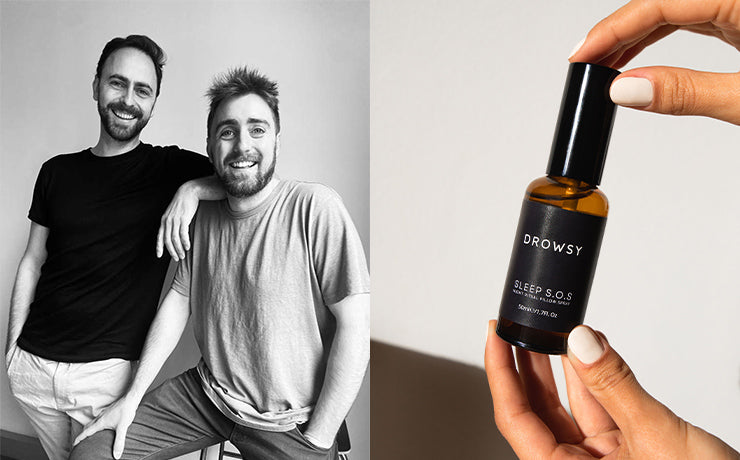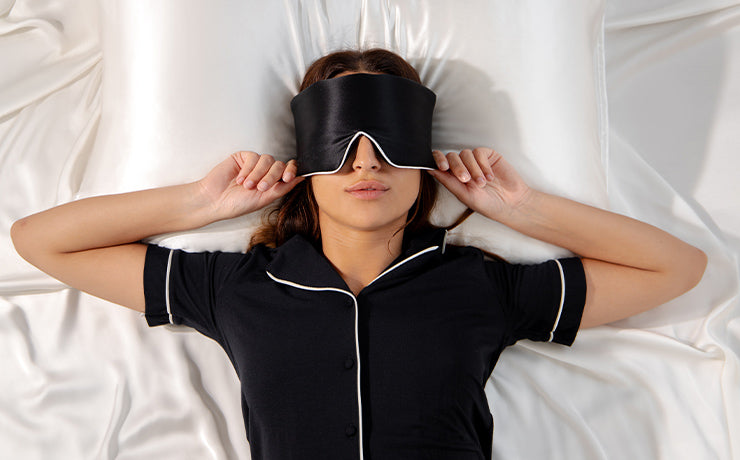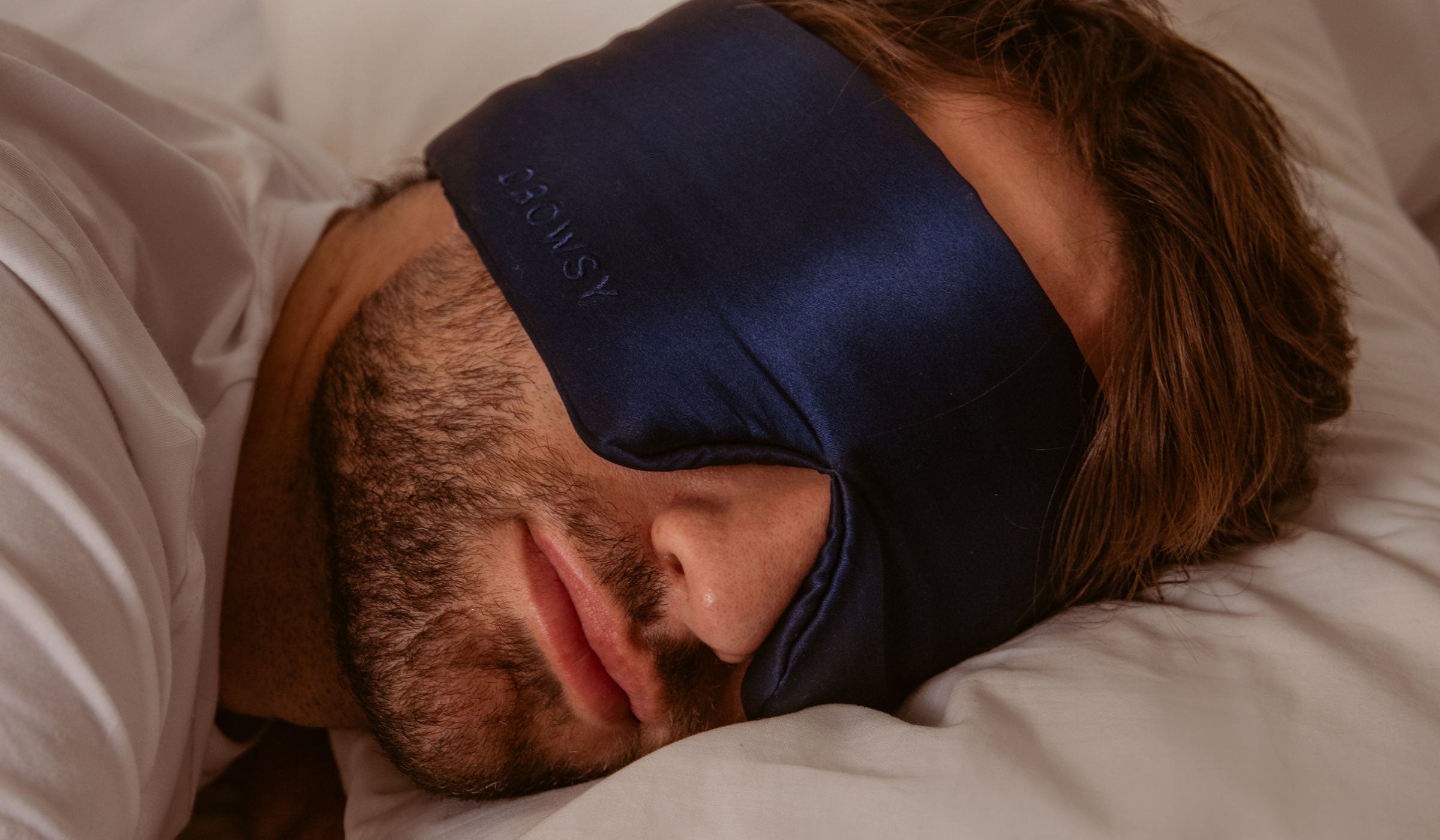Choosing a sleep mask for sensitive skin: what to look for
Using a sleep mask over your eyes greatly improves the quality of your sleep. It reduces stress from light and muscular tensions around your eyes. But it's not always beneficial for your skin. And if you have sensitive skin, this can become really annoying, as everybody can see your face. Good news, there are many sleep masks designed for sensitive skin like yours. All you need now are a few tips to help you choose the right mask.
How sensitive is your skin?
Knowing yourself is our very first tip. Many people declare they have sensitive skin, but what does it really mean? There are so many different skin types and conditions out there that choosing the right mask for you can be complicated.
To help you understand your skin type, without waiting for a dermatologist appointment, try this simple experiment. Put on a cheap regular cotton sleep mask and see what happens. Cotton is the basic one-size-fits-all choice for bed linens and clothes, you can't really go wrong with this.
After one night of sleep, look for the issues on your face: dry skin, moist skin, wrinkles, reddish skin, allergic reaction... Let's find the right sleep mask for your skin with the help of Drowsy Sleep Co.
Choosing masks for dry skin
If after your night of sleep your skin feels dry and tense, maybe even itchy, you need to avoid cotton. This fabric absorbs moisture, so instead, you should opt for a polyester mask, which doesn't absorb moisture. It will actually make you sweat a bit.
For better results, combine the mask with hydrating creams, or choose masks already containing the necessary oils and products, like hyaluronic acid, shea butter or glycerine. These masks come in different fabrics. There is also a great availability of alternatives if you're allergic to polyester.
The optimal masks for oily skins
If your skin is oily, or you have acne, you have to take some precautions before using a sleep mask. Pressing fabrics against your skin for an entire night can block the pores. If your skin condition is not too severe, you can first apply specific skin treatments. Once your skin is dry, go to sleep and put your mask on.
Cotton and silk masks - including satin, which is their mixture - are good at absorbing moisture. They can also absorb a bit of skin oil. But these need to be cleaned the next day, or they won't absorb it anymore.
Preventing wrinkles with silk masks
Your best option here is silk. This natural product of silkworms, or its vegan bamboo equivalent, is shiny, soft, moisture-wicking, and bit expensive. But the results are really worth it. Silk glides across your skin without any friction. It won't press on your skin or deform it. When you wake up in the morning, your face will be as smooth as before, after a superb rejuvenating night of sleep.

Keeping your skin cool: silk vs. cotton
Here again, silk reigns superior to cotton. Yes, cotton absorbs moisture, but so does silk, and it always keeps its cool touch on its shiny surface. You'll always feel cool with silk.
Another option is a gel mask. This type of mask contains a gel that you can put in the fridge before use, or warm it up during the winter.
Addressing skin allergies
Cotton allergy is very rare. But if you have it, you've probably already discovered it with your usual clothes. If a cotton sleep mask leaves your skin irritated, it may be due to other issues, like rubbing or dry skin.
On the other hand, polyester allergies are a lot more frequent. If you have allergy issues, we recommend you avoid polyester and other artificial fabrics.
Silk face masks are definitely better than polyester masks for this purpose.Silk doesn't usually cause irritations or allergies since it doesn't rub against your skin, making it a natural fabric of choice.
Extra care for sensitive skin
Your basic cotton mask leaves your skin irritated. But you don't have an allergy, and your skin isn't too dry. Be reassured, there are solutions out there to secure your good night of sleep.
One way or another, look for masks marketed as hypoallergenic. This will at least remove one source of worrying. Then, look for masks that are fragrance-free. Fragrances can contain allergenic elements, or irritating ones, be they natural or chemical.
Once you have your hypoallergenic, fragrance-free mask, add soothing ingredients on it. The most notable ones are aloe vera, chamomile and calendula. These can hydrate your skin without causing any irritation. They can even reduce irritation already present after a day of sun and dust.

The beauty of silk masks
To conclude, silk masks offer some of the best choices. Because silk is frictionless, it won't irritate your sensitive skin as much and is less likely to cause allergic reactions. Silk absorbs moisture and always feels cool. Combine your silk mask with the proper skin care - like soothing ingredients such as aloe vera - and you will obtain awesome results. We also recommend silk pillowcases, for an ideal result and a good night of sleep.






